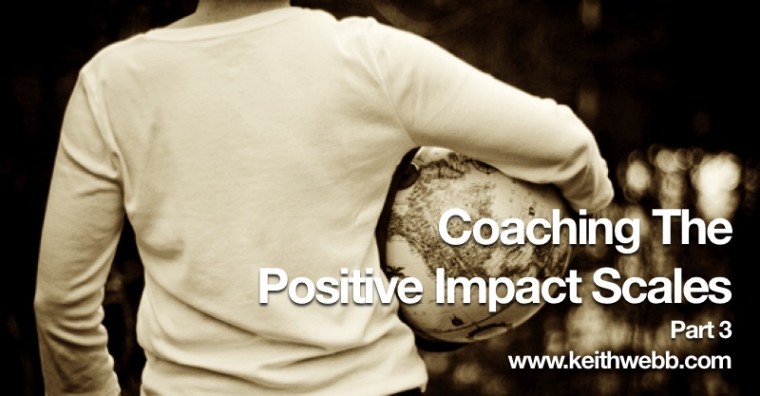“Changed lives,” Peter Drucker said, is the bottom line for the not-for-profit organization. To produce the sustained ability to change lives, you need purpose, effort, organization and money. Everything you do is a trade off between resources and results. Here are 4 scales I use to plan and make decisions to create sustainable positive impact.

Let me explain the four scales first, then I’ll show you how they interact.
1. Purpose
Purpose answers the question Why? Purpose is the bigger picture you seek to achieve. Regardless of whether you are a solopenuer or large organization you must know and maintain focus on your purpose.
For a solopeneur, your purpose will be closely related to your calling and giftedness. You can stray from your calling, to go after money, for example, but you cannot continue for long without having the life drained out of your work.



